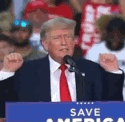|
Waters joined the Idaho national guard in 1916, so he had some military experience before WW1, but he seems to have left the military as soon as WW1 ended. I guess you could make a case for him, but not a terribly strong one.
|
|
|
|

|
| # ? Apr 25, 2024 08:15 |
|
Yeah, I think circumstances are too different to put him in Kaiserreich.
|
|
|
|
Waters might be a good character to add to an event, but the Bonus March probably wouldn't have happened if the US had stayed out of WWI since it was directly tied to how long a soldier served during wartime. Adding events for the major Modernist authors would be fairly easy. What kind of book would John Steinbeck write in the event of a SA victory? What does Scott Fitzgerald think of Hemingway's involvement in the CSA government? For that matter, what's Hollywood doing during all of this? The studio system was in full swing and hundreds of classic movies were made during the Kaiserreich period. What film does Charlie Chaplin make instead of The Great Dictator? How is the PSA benefited by having the vast majority of the biggest stars from the Golden Age of Hollywood working for them? Major League Baseball is easily and by far the most popular entertainment in the USA at the time. Does it start back up after the war?
|
|
|
|
Steinbeck's writing in this time is so caught up in California and the specific circumstances of our Great Depression that I have no idea what he'd be doing. He could go in a bunch of different directions. I added in an event to restructure Hollywood as the CSA- moderates want it left alone, centrist syndicalists want it nationalized and run by the SAG and other groups, and totalists want to blow up the entire area and build something "useful". Someone once had an idea for Chaplin to make a Kaiserreich-flavored version of the Great Dictator, presumably with the same speech. That'd be a cool thing to add in as a follow-up to Modern Times being censored Baseball keeps going, AFAIK. That's probably something best left to the player's imagination.
|
|
|
|
Zeroisanumber posted:Waters might be a good character to add to an event, but the Bonus March probably wouldn't have happened if the US had stayed out of WWI since it was directly tied to how long a soldier served during wartime. Charle Chaplain is mentioned as making some pro-Combined Syndicates movie, released shortly before elections. It gets censored. edit: and now that I look it up, it is "only" Modern Times. For some reason I thought it was something else.
|
|
|
|
Kavak posted:Steinbeck's writing in this time is so caught up in California and the specific circumstances of our Great Depression that I have no idea what he'd be doing. He could go in a bunch of different directions. Isnt there an event where Steinbeck writes a book titled "with his fiery greatsword" or something like that? Or was it by someone else? Also with Waters I didn't know the US didnt go into WW1, that would definitely explain his absence.
|
|
|
|
Communist Zombie posted:Isnt there an event where Steinbeck writes a book titled "with his fiery greatsword" or something like that? Or was it by someone else? That must've been someone else or a removed event because I have no idea what you're talking about.
|
|
|
|
Major League Baseball had quite a few people serve during wartime, often in combat roles. http://www.nytimes.com/2013/05/26/sports/baseball/remembering-the-major-leaguers-who-died-in-world-war-ii.html?_r=0 Many of them weren't in danger. I think Kaiserreich is a little bit earlier in time frame than vanilla DH(?) so maybe Gehrig would have been involved somehow, only to die of ALS.
|
|
|
|
a lot of the famous baseball players in this era were from california, like the dimaggios, jackie robinson, and ted williams* - in real life they all came east because that's where the major leagues were. the pacific coast league, the best minor league which was making noises about major status in the mid-20th century, would become a proud national major league in this scenario. i assume the reunification has already begun but if these splits lasted maybe we americans would care about national team baseball. really though it might be outside the scope of this game. but if not, it'd only take like 2000 events to play out each game of a season of major league baseball edit: i should probably figure out the national teams edit2: in the spirit of this thread here's an editorial entitled Yes, Virginia, millionaire ball players can be class-struggle heroes quote:In the words of Yankee great Yogi Berra, “When you come to a crossroads, take it!” *guess that's not quite this era. eh oystertoadfish fucked around with this message at 04:49 on Feb 21, 2015 |
|
|
|
GSD posted:Charle Chaplain is mentioned as making some pro-Combined Syndicates movie, released shortly before elections. It gets censored. Chaplin doesn't get mentioned after that because he's a possible government minister for the Combined Syndicates.
|
|
|
|
I'm playing CSA and France declined the Alsace-Lorraine or war event  Will the world war happen anyway or do I have to manipulate it via alliances?
|
|
|
|
James Garfield posted:I'm playing CSA and France declined the Alsace-Lorraine or war event IIRC the AI will at some point in the future get a 'gently caress it attack anyway' event that will trigger the war.
|
|
|
|
Mister Bates posted:Chaplin doesn't get mentioned after that because he's a possible government minister for the Combined Syndicates. That is fantastic. Is he a Foreign Minister? Please say he is a potential Foreign Minister.
|
|
|
|
Minister of Security, "Man of the People" personality. What would you recommend for him as foreign minister?
|
|
|
|
Just the idea of Charlie Chaplain, Master Diplomat sounded amusing. Being an actor has to help with diplomacy, right? Also because none of the other minister positions seemed to make sense in my mind. As for what personality he'd have as a theoretical foreign minister, hmm. I would need to go over the options, I don't know the personalities off the top of my head. Ideological Crusader, as he satirizes other ideologies? ... Great Compromiser, as he charms other diplomats by satirizing their enemies? I don't know. It wasn't meant to be the most serious of suggestions (though having him go on diplomatic missions still sounds
|
|
|
|
I imagine him being in charge of the CSA's USO equivalent.
|
|
|
|
James Garfield posted:I'm playing CSA and France declined the Alsace-Lorraine or war event It'll start eventually regardless. While I like the randomness and replay value added by having multiple different ways for the Second Weltkrieg to start, it almost always seems to start way too early for it to be much of a thing. It kicked off in 1937 in my last Combined Syndicates game, when I was still locked in a life-or-death struggle with the AUS, and the war was already over with the complete annihilation of the Internationale by Mitteleuropa by the time I won, so it was just like...gently caress, where do I go from here? Also, Fortress Britain sure does seem to get invaded easily, I don't know who said the AI is terrible at amphibious landings but the German AI has been more than capable of conquering the UoB the last three or four games I've run.
|
|
|
|
They're terrible at amphibious landings really far away from their home bases. Shipping hundreds of thousands of men across the English Channel is doable.
|
|
|
|
I had the Ottomans of all people invade England in one game, but they got driven out.
|
|
|
|
Pimpmust posted:I had the Ottomans of all people invade England in one game, but they got driven out. No they didn't, why do you think Birmingham is a no-go area for white people? 
|
|
|
|
I had Germany declare war on the Ottomans in one game.
|
|
|
|
One game I was La Plata, invaded CNT-FAI, created the Kingdom of Spain as a puppet and then Spain invaded Britain successfully.
|
|
|
|
Finally Mary Queen of Scots is avenged.
|
|
|
|
So I guess it's not so much that the AI is good at amphibious invasion and more that the AI is bad at defending the British Isles.
|
|
|
|
I always thought that if Kaiserreich wanted some good inspiration for a syndicalist/socialist America, taking inspiration from Reds! would be a good idea. It's an incredibly well-written and thought out alt-history scenario where the US undergoes a socialist/communist/anarchist revolution in the 20s, and how American society/the world would develop as a reaction.
|
|
|
|
Kaiserreich copies Reds beat-for-beat on a few points, like the MacArthur junta and exiled Federal government going to Cuba, so you're a little late on that. Still, I think its ideas about the domestic policy of a socialist America could be interesting.
|
|
|
|
Kavak posted:Kaiserreich copies Reds beat-for-beat on a few points, like the MacArthur junta and exiled Federal government going to Cuba, so you're a little late on that. Still, I think its ideas about the domestic policy of a socialist America could be interesting. Huh, I always thought the MacArthur junta was always just a case of parallel evolution, but now that I replay the CSA again, I can see the influence.
|
|
|
|
Chapter Seven: The Sick Old Men (1938) From: smeehan@ucla.edu Subject: Supplemental Readings Please read the following four readings in preparation for our next class. 4 Attachments File 1: ottomans.pdf downloading... Done! The Ottoman Empire in the years before the First Great War was known as the sick old man of Europe. By 1938, that moniker was even more popular. The economy lacked modern industry and the standard of living suffered as a result. Railway networks were not nearly as dense as elsewhere in Europe, and the Ottoman military was obsolete and more suited to occupying outposts and putting down tribal revolts than fighting a real war. Nonetheless, the Empire was so dependent on Germany for currency, technology and arms that they would have to prepare for what seemed like an inevitable clash between the Internationale and Mitteleuropa. The attempted military buildup further strained the Empire, especially in combination with some of the other troubles it was facing.  Among these was a full fledged Kurd revolt. Kurdistan straddled the crucial crossroads between Armenia, Syria and Iraq, and the Ottomans could ill afford to have a free Kurdistan in its midst.  Albania had been the Ottomans last area of influence in Europe beyond Thrace. The principality had long been under the suzerainty of the Sublime Porte and had been an important part of the Empire for centuries, providing the famous Köprülü Frand Vizier dynasty. Even this long history could not stand up in the face of the Ottoman troubles. A nationalist who took the name Zog led a coup to remove the German-born Turkish-supported prince and put Zog on the throne as King of Albania.  Albania paid a price for its independence. Without the protection of the Ottoman Empire, Albania was powerless to resist when Serbia claimed Kosovo.  Not to be left out, the Greeks also moved to occupy Northern Epirus/Southern Albania. The tiny kingdom could not do anything about the landgrabs.  Despite Albania's troubles, Ottoman client states everywhere took notice. The Omani Sultanate, which had fallen under Ottoman sway since the demise of the British Empire, unilaterally abrogated their unfavorable treaty with the Empire.  Surprisingly, the Egypt-led Arab bloc did not strike the Ottoman Empire to make good on their claims laid out at the Arab Congress.  The distant Tripolitania was next, fearing little from what seemed a distant master now.  The emirate changed its name to Libya and evicted all Turkish administrators. Egypt was eager to fill the void for a fellow Arab state, expanding the Arab bloc to three members.  Armenia seized upon the chaos to declare their own independence, confident that their fortified mountain capital could hold against the Ottomans better than the Kurds.  Their situation was made somewhat less tenable by the decision of the Transcaucasian Socialist Republic to attempt and seize the state while the Ottomans were unable to respond.  The Ottomans were forced to concede that the crises of 1938 had resulted in permanent losses. The Sublime Porte recognized Zog as the ruler of Albania first and later would recognize the actions of Oman and the now Libya as well. They did not, however, recognize the Armenians and would continue a hard fought mountain war with that nation for years. The loss of virtually all Ottoman influence beyond its own borders was a severe trauma to what national pride remained for the Ottoman Empire. 1938's aftereffects would ripple through the Empire for the rest of its existence, interfering with their ability to fight the Internationale down the road. The Ottoman Empire may not have been officially abolished until the 1940s but it was effectively dead by the end of 1938. File 2: germany1938.pdf downloading... Done! Before war ever broke out, it was beginning to become clear that there were serious cracks in the German Empire. Germany had attempted to assume an imperial position across the world once held by Great Britain while also assuming a Continental dominance at the expense of Russia mainly. The economic difficulties of the 1930s and the ever more aggressive stance of the Internationale began to create visible cracks in the German armor, especially in 1938.  The incident which caused the most alarm within Germany itself was the advent of the Ukrainian Soviet Socialist Republic in 1938. Nikita Khrushchev, a peasant who had clawed his way into Ukrainian politics, had gained the favor of the lion's share of the population through his fiery socialist rhetoric. When the King announced a new trade deal that would increase grain exports to Germany in the midst of shortages in the domestic market, the populace exploded in anger and demanded the abdication of the King, which they got. Khrushchev peacefully established a new SSR within the former kingdom, while also ending ties with Germany. The German Empire did not respond publicly, their stance being that since Ukraine had rejected closer ties with France or the Combined Syndicates, they did not represent a threat.  The Germans were saved considerable trouble by conservative nationalist factions within the nation. Khrushchev was forced into exile in Paris. The military leaders kept the regalia of the republic, reaffirmed the end of the unpopular monarchy and announced elections to be held with candidates approved by the military (and tacitly by Germany). Still, Mitteleuropa had been shaken by Germany's lack of public response to one of its own breaking rank. The population of the member states also noted that an Eastern European had thrown off the shackles of Germany and not invoked her wrath.  Germany did lose a considerable amount of prestige in European affairs after that incident and when Sweden protested at the Lapua regime's repression of their kindred in Ĺland, the Germans were not invited to the discussions between Sweden and Finland.  Germany's embarrassment had knock-on effects in the Balkans, where the Balkan League sensed the opportunity to strike at a German-friendly state in Bulgaria. Neither Germany nor the Ottoman Empire had much effective protest to offer.  The troubles were not confined to Europe. The economic issues of the thirties had strained Germany's abilities to protect its sprawling colonial empire. Thus when the wealthy princes of India requested to purchase Ceylon for a hefty sum, the Germans agreed and moved their naval station to the Maldive islands.  Perhaps the most stunning and embarrassing turn for the German Empire occurred in Indochina, the former French possession that represented the jewel of Germany's Asian possessions. The Bhartiya Commune had created an intricate and effective arms smuggling route through Burma and Thailand and armed the Viet Minh, a coalition of pro-independence forces dominated by the syndicalist faction of the charismatic Ho Chi Minh.  After a brief and bloody war that ended with a hurried evacuation of German settlers and military to nearby Hainan island, the Germans gave up the conflict, unwilling to commit the men necessary to hold onto the territory in face of a total revolt. The optics of Germany being outplayed by a second-rate power in Bengal was too much and led to the collapse of the SPD government, which would be replaced by the conservatives in a new election. The conservatives had no plan to get Indochina back either. It was clear to the world that Germany was no longer able to effectively execute the responsibilities of its position as the preeminent capitalist imperial power in the world. File 3: qing.pdf downloading... Done! The Qing Empire in 1938 was beginning to feel the effects of independence from Germany for the first time. Germany's troubles had led to the usual tight grip of Germany on Qing foreign policy loosening, with tremendous consequences for the Qing Empire and China at large.  After years of inconclusive conflict between the AOG and the Shangqing rebels, the Qing Empire and the National Protection Alliance based in Yunnan province joined forces to put an end to the millenarian revolt once and for all.  The two partners split the territory of the rebels more or less evenly between them, with the AOG gaining a small sliver of territory for its troubles.  More importantly, the destruction of the rebels signaled a return to prominence for the Qing Empire. The Qing were finally able to claim total control over part of China, even if it was only the parts between Japanese Manchuria and the German AOG territories. Nonetheless, the stability of the Qing Empire in an increasingly unstable world led to their meteoric rise to Great Powerhood.  The Qing Emperor boldly demanded the total integration of the AOG territories into the Qing Empire, something that had been off the table when the Germans were in control. Doing so doubled the size of the Empire and brought considerable industry, resources and manpower under the control of Pu Yi.  With the Legation powers in varying levels of turmoil and distraction, the Qing Empire also successfully established its precedence in the coastal trade ports.  Pu Yi, with the new resources of the south, took on the Mad Baron Sternberg in Mongolia, seeking to remove a wildly unpredictable threat to regional stability.  Even though the republican faction based in Yunnan claimed sovereignty over the whole of China, the Qing Empire had established a period of stability in China, in a country that had known little and in a time where there was not much to be found. Pu Yi's gains in 1938 laid the foundation for what would become a formidable enemy for the Internationale in future years. File 4: colonies.pdf downloading... Done! The collapse of the French and British colonial empires had left a void so large that many theorized that the remaining European empires could not effectively fill it, and thus usher in a new era of independence across the world. In some places, they were right but in many, colonialism persisted for decades longer. It wasn't until the late 1930s that the agitation of the Internationale, economic pressures and nationalist unrest took their toll and began to do serious damage to what was left of the colonialist system.  The colonial powers cared about the opinion of the Internationale to varying degrees, ranging from not at all in the case of Germany to considerably in the case of the Netherlands. The Netherlands were ruled by a social democrat coalition that was considerably to the left of their co-ideologues in other capitalist states. They depended on the French for arms and trade. The continued colonial domination of Indonesia by the Netherlands was a sticking point in their friendly relations, which was one of many factors cited when the Dutch government elected to grant wide-ranging powers to the Indonesian people, including the ability to elect their own government and manage their own internal affairs, though foreign and military affairs remained the domain of the Dutch. The French were never truly satisfied by this arrangement, but it was seen as a positive step.  The Internationale attempted to make their presence felt mainly against hostile states. Burma had been a close ally of Germany ever since it gained its independence and the Internationale tried mightily to foster socialist revolution via Bengal. The Burmese regime proved more durable than expected and the socialist rebels moved into exile in the Bhartiya Commune.  While Germany's waning influence was opening up opportunities for the Internationale and independent states in Asia, the destruction of the United States of America in civil war left a massive void in the Americas comparable to the one left elsewhere by Britain. Without the enforcing presence of the United States, Haiti was not satisfied with merely defeating their Dominican rivals in the field, but destroying the Republic and establishing control over the whole of Hispaniola.  While the French and British Empires had been effectively destroyed, their remnants carried on as best they could. The French exile government in Algiers administered a wide swath of France's former colonies in West Africa, including unruly Tuareg territories that rejected French control.  In the summer of 1938, an incident with a French military caravan triggered a massive invasion of French lands by the Tuaregs.  The distraction triggered a Guinean nationalist to declare the south of the French Empire to be free as well, leaving Algiers with two major revolts to deal with at once.  The Tuaregs seemed to fade back into the desert as quickly as they had roared out, having pillaged vast swathes of territory and killed untold settlers. The French, still dealing with African nationalists in the south, were more than willing to let the Tuaregs get away.  The British Empire lived on in the form of Canada, which attempted to keep the band together so to speak. When the Republic of South Africa began to approach Canada about rejoining the Entente after its departure decades earlier, the Canadians jumped on the chance to expand their alliance.  The Entente had expanded to include all of the former dominions and various remnants of the United States. While it was not taken seriously as Mitteleuropa and the Internationale were, it was still a force that made its presence felt, particularly to the socialist government in Chicago.  It was exactly the question of that socialist government in Chicago that triggered South Africa to renege on their agreement to rejoin the Entente. The South Africans were interested in covert operations against the Mittelafrikans but the Canadians were understandably completely enveloped in trying to deal with the ascendant syndicalists in America. Their strategic concerns did not align and so the deal broke down.  Not even Denmark was spared the wave of nationalist sentiment, with one of their few colonies achieving independence after centuries of Danish domination. Iceland was independent once again and occupied a crucial position in the sea lanes between the competing Royalist and Republican factions of Canada and Britain. Truly, in every corner of the globe, colonialism was beginning to disintegrate as a system. The rise of syndicalism in three major powers already had left voids not only in the political climate of the colonies but in the global capitalist economy. Germany had a great deal to panic about with anti-colonialists gaining traction everywhere, but even more to panic about in terms of the deep and serious issues of their economy.
|
|
|
|
Holy poo poo, capitalism is imploding in this timeline and we're not even having to do anything. Also, that 'we changed our minds!' decision is hilarious.
|
|
|
|
Holy moley does Kaiserreich have a lot going on. I'm considering getting over my horror at going back to the Europa engine (look, you'd feel the same way too if your very first Paradox game ever were vanilla Victoria 1) and giving KR a try, even though Darkest Hour seems a bit intimidating. Maybe I should just wait for an HoI IV version, though...
|
|
|
|
Mister Bates posted:Holy poo poo, capitalism is imploding in this timeline and we're not even having to do anything. "Wait. Fight the US? Nope, gently caress that. We out."
|
|
|
|
Zeroisanumber posted:"Wait. Fight the US? Nope, gently caress that. We out." I had to give them some kind of motivation other than "Psych!!"
|
|
|
|
It's neat to see what else is going on in the world. And yeah, South Africa showing up to the entente conference, seeing what's going on, and running off going "nopenopenope" is pretty hilarious.
|
|
|
|
Chief Savage Man posted:I had to give them some kind of motivation other than "Psych!!" Trying to ascribe coherent motives to inscrutable AI decisions is one of the best things about LPing a Paradox game.
|
|
|
|
Chief Savage Man posted:I had to give them some kind of motivation other than "Psych!!" I never got why South Africa even got the event to turn down joining an alliance that they asked to join. They can do it with the Internationale (and Mittelfrika? whatever other alliance they can seek) too on the rarer occasion they decide to do that.
|
|
|
|
Rincewind posted:Trying to ascribe coherent motives to inscrutable AI decisions is one of the best things about LPing a Paradox game. Stupid AI decisions, while usually funny, can be annoying sometimes. For example, the CSA sometimes decides that it's certainly able to fight the USA, AUS and Canada at the same time.
|
|
|
|
Canada attacks them, IIRC.
|
|
|
|
There's rare but possible events both for Canada to invade the CSA immediately (1% iirc?) and for the CSA to respond to the seizure of New England with immediately declaring war.
|
|
|
|
Rincewind posted:Trying to ascribe coherent motives to inscrutable AI decisions is one of the best things about LPing a Paradox game. Even better is trying to explain the dumb unrealistic things that the games make us do as players. A few times in this LP, I'm trying to explain why a victory point province matters and the concentration of fifteen divisions doesn't. I'm glad that DH doesn't have as many gamey tactics as the original, since I don't have enough self control not to abuse them. "The Red Army elected to rely solely upon an ever growing horde of close air support aircraft, which successfully annihilated enemy formations without the need for ground forces."
|
|
|
|

|
| # ? Apr 25, 2024 08:15 |
|
Chapter Eight: The Organization of American Syndicates (February-September 1939) The alliance and relations boost with Centroamerica was edited into the event. Because the Commune of France is our alliance leader, we have zero control over who is in our alliance, unless we release them as a puppet. Centroamerica has just as much to gain from the demise of the Entente as we do, so an alliance makes perfect sense. IN THE NAME OF THEIR PEOPLES, THE STATES AND NON-STATE REPRESENTATIVES PRESENT AT THE FIRST INTERNATIONAL CONFERENCE OF AMERICAN SYNDICATES,  RESOLVED to persevere in the noble undertaking that the workers have conferred upon the Internationale, whose principles and purposes they solemnly reaffirm; Convinced that the cancerous influence of capitalism and imperialism is a critical threat to a security and peace founded on moral order and social justice; and In accordance with the Final Act of the Second Congress of the Syndicalist Internationale, held in Paris, HEREBY DECLARE THE FOLLOWING:  Our Totalist label is temporary, we switch back to Syndicalist shortly afterwards. I. ON CENTROAMERICA AND ITS RIGHTFUL TERRITORY; The Union of Centroamerican Syndicates (hereafter known as CENTROAMERICA) has sole legitimate authority to administer the territories south of the United Mexican States (hereafter known as MEXICO) and north of the Republic of Colombia (hereafter known as COLOMBIA), except as defined in article XII. II. ON THE ADMINISTRATION OF PANAMA; The accession of Panama into Centroamerica was done through legitimate democratic means and ought be recognized by any just nation.  III. ON THE HONDURAN JUNTA; The authority of the Honduran regime is illegitimate. The Combined Syndicates of America officially apologize for the actions of the former United States with regards to these republics and agree to lend to Centroamerica all necessary assistance in establishing legitimate socialist government in the territory occupied by Honduras.  IV. ON AMERICAN MILITARY FORCE; Centroamerica authorizes the use of military force by the Combined Syndicates of America within its territory, as defined in Article I.  V. ON TECHNOLOGICAL ASSISTANCE; The Combined Syndicates of America agrees to lend technological assistance to Centroamerica, so that the armed forces of that state may be prepared to defend its sovereignty.  VI. ON THE UNITED PROVINCES AND HONDURAS; The signatories do not recognize the authority of the United Provinces of Central America in the matter of Honduran administration.  VII. ON THE STATUS OF SYNDICATES IN CENTRAL AMERICA; Syndicates within the territory of Honduras will be afforded the same rights and assigned the same responsibilities as the syndicates currently administered by the signatories of these accords.  VIII. ON THE RESTORATION OF RIGHTFUL SOCIALIST GOVERNMENT IN CENTRAL AMERICA; The signatories will lend Centroamerica all necessary assistance to contain and eliminate the United Provinces of Central America, at such a time as is deemed possible.  IX. ON SECRECY; The terms of Articles IV through VIII are to be kept secret until such a time as Centroamerica authorizes their declassification.    X. ON THE REVOLUTIONARY MARINES; The Revolutionary Marines of the Combined Syndicates of America are authorized to use the ports and facilities of Centroamerica until January 1st, 1950 or until requested to vacate by the government of Centroamerica, whichever comes first.  XI. ON INTERNATIONALE FACILITY SHARING; Any and all members of the Internationale may use the military facilities of the signatories with prior permission of the sovereign government responsible for the facility.  XII. ON THE PANAMA CANAL AND THE ILLEGAL OCCUPATION THEREOF; The signatories reaffirm that the Combined Syndicates are the rightful and sovereign owner of the Panama Canal, as the legal successor to the United States of America. The occupation of the canal by the Canadian government is illegal. XIIa. The Combined Syndicates of America pledge to transfer control of the canal to Centroamerica as soon as the Canadian occupation is ended.   XIII. ON COLLECTIVE SECURITY; The Organization of American Syndicates shall be chartered in San Juan, Puerto Rico, as an associate organization of the Syndicalist Internationale, for the purposes of mediation and cooperation among the socialist states of the Americas. XIIIa. An attack on one signatory shall be regarded as an attack on all. XIIIb. The signatories shall endeavor to more effectively defend against imperialist aggression through integration of their armed forces. XIIIc. The signatories agree to mediate disputes through peaceful and brotherly means. XIIId. Any signatory that has not achieved control of its sovereign territories, as defined by the Organization of American Syndicates, shall be exempt from Article XIIIa and XIIIb.  XIV. ON ASSOCIATE MEMBERSHIP; The associate signatories of these accords shall be bound by all articles except XIIIb. XIVa. Any and all prospective signatories that do not reside on the continents of North or South America shall be restricted to associate membership. XV. ON THE FUTURE OF THE AMERICAS; No imperial or capitalist power shall be tolerated in the Americas. Any and all necessary measures are authorized if they further the aims and spirit of these accords, as affirmed by the Assembly of the Americas of the Organization of American Syndicates. XVI. ON TRANSLATION OF THIS AGREEMENT; The text of this agreement shall be made available in English, Spanish and French, which shall also be regarded as the official languages of the Organization of American Syndicates. SIGNED, FOR THE UNITED MEXICAN STATES, Vincente Lombardo Toledano, President Pancho Villa, Field Marshal FOR THE UNION OF CENTROAMERICAN SYNDICATES, Romualdo Jimenez Oreamurio, President Francisco Javier Arana, General Secretary FOR THE COMBINED SYNDICATES OF AMERICA, John Reed, Chairman of the Central Committee Paul Mattick, General Secretary of the Continental Chamber George Marshall, Supreme Commander of the American Red Army FOR THE REPUBLIC OF PUERTO RICO, Jesús T. Pińero, President FOR THE CANADIAN TRADE UNION CONGRESS, Timothy Buck, General Secretary FOR THE SOCIALIST PARTY OF QUEBEC, David Côté, General Secretary FOR THE FEDERATION OF COMMUNES OF FRANCE, AS AN ASSOCIATE SIGNATORY, Sébastien Faure, Chairman of the General Labor Council Daniel Guerin, Chairman of the Committee of Public Safety FOR THE UNION OF BRITAIN, AS AN ASSOCIATE SIGNATORY, Niclas y Glais, General Secretary of the Trade Union Congress Tom Mann, Chairman of the Trade Union Congress FOR THE SOCIALIST REPUBLIC OF ITALY, AS AN ASSOCIATE SIGNATORY, Palmiro Togliatti, President of the Socialist Republic of Italy Antonio Gramsci, Chairman of the House of Commons
|
|
|



























